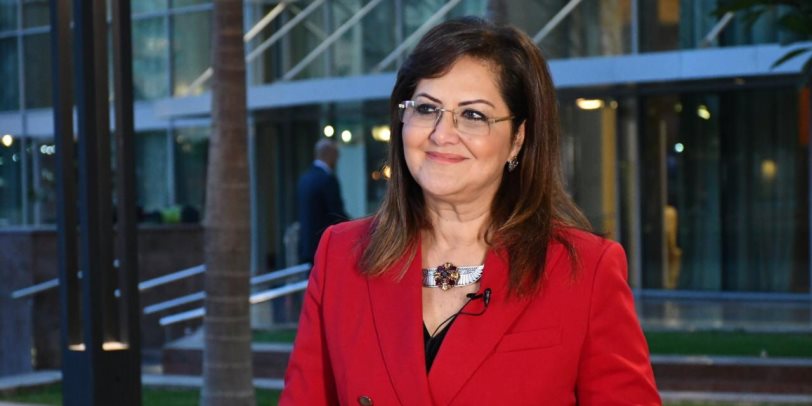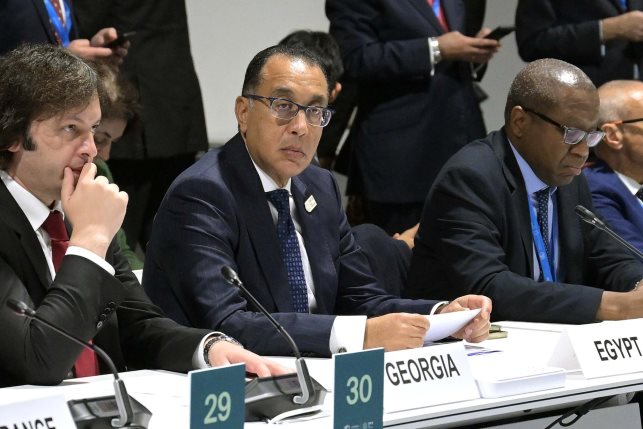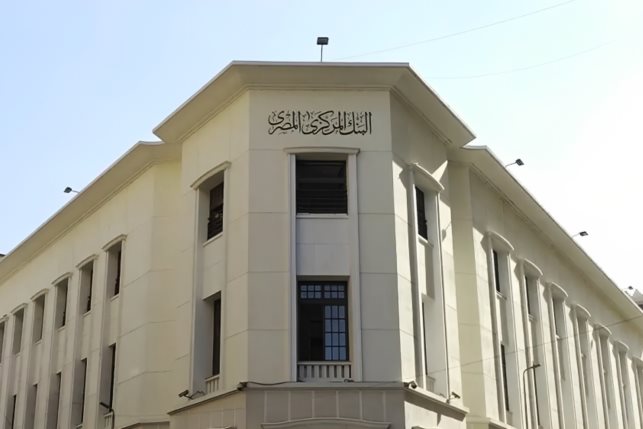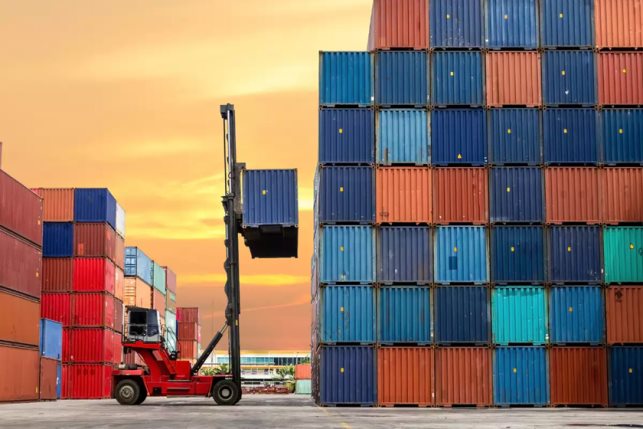Egypt’s economic growth hits 5.6% in H1of 2020
El-Saeed confirmed that attributed the hike in the growth rate to the economic reforms applied by the Egyptian government since 2016.
 Minister of Planning Hala el-Saeed during her speech at Egypt Economic Summit
Minister of Planning Hala el-Saeed during her speech at Egypt Economic Summit
CAIRO - 2 December 2020: Egypt’s economic growth recorded 5.6 percent in the first half of 2020, and about 5 percent during the third quarter of 2019/20, with an average growth of 5.4% in the first nine months of the year, until the corona crisis emerged and affected the decline in many economic indicators, according to Minister of Planning Hala el-Saeed.
El-Saeed confirmed that attributed the hike in the growth rate to the economic reforms applied by the Egyptian government since 2016.
“Despite this relative decline, reform efforts and the diversification of the Egyptian economy have contributed to the Egyptian economy becoming more flexible and able to absorb external economic shocks,” she said.
She also pointed to the positive expectations of international institutions regarding the Egyptian economy, which is the only economy in the region that achieved positive economic growth rates in light of the crisis.
Moreover, she referred to the results of the Global Economic Outlook report issued by the International Monetary Fund in October 2020, in which it raised its expectations for GDP growth.
“The total for Egypt rose to 3.5% for this year, compared to its previous forecast of 2% in the report of last June, which makes Egypt among the only three economies in the Middle East and Central Asia to achieve economic growth in 2020,” the minister said, pointing to Fitch Ratings Agency’s report which stated that Egypt is in on its way to achieving the highest real GDP growth rate in the Middle East and North Africa region between 2020 and 2024.
According to the minister the unemployment rate dipped to 7.3 percent in the third quarter (July-September) of 2020, compared to 9.6 percent in the previous quarter (April-June) of the year.
In addition, she indicated that all international institutions praised the rapid Egyptian response to the first wave of the corona pandemic, describing it as being among the best in Africa and the Middle East, as the government took proactive policies that relied on a clear and deliberate plan targeting all social groups and sectors to mitigate the effects of the corona pandemic.
“Egypt has witnessed many major political, economic, and social changes and challenges in recent years, specifically since January 2011 and the consequent accumulation of structural imbalances that the Egyptian economy has suffered from for decades, whether in the real sector, in the financial and monetary sector, or the external sector,” she stated.
El-Saeed added that all these challenges negatively affected the decline of most macroeconomic indicators from the decline in growth rates to their lowest level in 2010/11 by about 1.8 percent, which is much lower than the rate of population growth, noting that achieving development requires the sustainability of positive economic growth to exceed the least weak population growth rates, following the increase in the severity of the challenges facing the Egyptian economy in light of the political and economic changes, regional and international events that the Arab region and neighboring countries have witnessed in recent years, and the new outbreak of the corona pandemic and the associated negative health, economic and social effects.
Sustainable Development
The minister said that the Egyptian state’s interest in localizing development for its sustainable development goals came among the priorities with the aim of achieving the concept of “inclusive and sustainable growth and balanced regional development” as one of the main pillars of Egypt's Vision 2030, noting that the Ministry of Planning and Economic Development is working on implementing projects to achieve this in cooperation with local and international development partners by setting quantitative targets for each of the indicators of the sustainable development goals at the national level and at the governorate level.
She explained that this aims to maximize the benefit from the comparative advantages of the Egyptian governorates and regions, and direct investments in the framework of the state’s general plan in a more efficient and effective manner, with a focus on the governorates that have larger development gaps according to the idea of targeting, on which the state’s efforts to implement development projects are based.
She also confirmed that the Egyptian state is increasing public investments by focusing on several promising sectors that represent a fundamental pillar to drive growth in the next phase, such as the sectors of health services and medical supplies, agriculture, food industries, communications, and information technology, construction, and manufacturing industries. In this context, the state aims to increase public investment by 70 percent, in a way that reflects the priorities imposed by the corona crisis.
“The most important sectors in which the investments allocated to it are increased are the health sector and the education sector, as it is of utmost importance to the Egyptian state as the main tool for development and building human capabilities and the main entrance to the progress of society,” the minister said.
El-Saeed added that the development plans and programs focus on advancing education services and developing them in line with the requirements of the times.
She explained that the state is working hard to mobilize the necessary financial resources to advance the education sector and increase investments directed to this sector, as the plan aims to direct total investments for education services amounting to about LE 50.9 billion in 2021 compared to about LE 31.4 billion in the year 2020, a growth rate of 61 percent. Public investments in the 2020/21 plan constitute LE 47.7 billion, 93.7 percent of the total investments, and a growth rate of 28% compared to the previous year.
She explained that the state also attaches utmost importance to the communications and information technology sector and digitization infrastructure in the context of enhancing the trend towards digital transformation and intensifying investments in this field, explaining that the state has expanded investments in the information infrastructure sector and digitization, as the volume of investments directed to this field in the 2020/21 plan increased to about LE 10 billion, an increase of about 300 percent.
According to the minister, the industrial sector in general, especially the manufacturing industries, comes from the main sectors on which the state’s efforts are based to achieve sustainable growth, diversify the productive structure, and create decent and productive work opportunities by increasing public investments directed to the non-petroleum manufacturing sector to about LE 65 billion, while expanding the establishment of specialized industrial complexes, starting to localize purchases of electricity sector companies, and localizing the production of medical products, for which the corona crisis has proven the necessity of increasing self-sufficiency rates. In addition, the plan aims to deepen agricultural industrialization and localize products of the telecommunications sector, the manufacture of trains and railway accessories, the manufacture of household appliances, and the furniture industry, in order to benefit from the changes in global supply chains in accessing new markets in which Egyptian products enjoy competitive advantages.
She also addressed the conversation about the trend towards a green economy, explaining that in light of the work to achieve the goals of sustainable development, the Egyptian government adopts a national strategy for the transition to a green economy, where work is underway to achieve 30 percent of investment projects in the state's plans for the concepts of environmental sustainability and green economy so that the percentage will increase to 100% in the next three years.
El-Saeed added that Egypt was at the forefront of countries in the region that issued green bonds in the international market.
El-Saeed stressed that the state is aware that there are still great challenges that must be faced, while creating promising opportunities from those challenges for future work and development, noting that among the most important challenges is the increase in population growth rates. She explained that if the current population growth rate of 2.56 percent is stable, the population of Egypt will reach 132.3 million in 2030.
“This means that Egypt is increasing annually by the size of a country with a population of 2.5 million, which increases the imbalance between the rate of population growth and the size of resources, devours the results and fruits of the achieved growth, and even threatens more economic and social pressures and challenges, which leads to a decline in the return from development efforts and more specifically per capita spending on education, health, housing, and transportation,” the minister noted.
She pointed to the difficulty of facing the problems of unemployment and the disparity in development indicators between the different regions and governorates with all of this, so the state works to manage the housing issue through controlling population growth and improving population characteristics such as education, health, job opportunities, economic empowerment, and culture.
This came during delivering the opening of Egypt Economic Summit, on behalf of Prime Minister saying that the summit comes as an affirmation and reinforcement of the participatory approach adopted by the government in its efforts to achieve development in various sectors, confirming the state’s keenness to encourage community participation in addressing all issues related to public affairs, especially the economic aspect.
The second edition of Egypt Economic Summit kicked off Wednesday, Dec. 2, in Cairo, under the auspices of Prime Minister Mostafa Madbouli.
The summit, which is entitled ,” Investment Opportunities”, aims to pinpoint strategies for the Egyptian Economy in a Post-Pandemic world, including panels related to sectors of investment and finance, Information and Communication Technology (ICT), and real estate.
According to an earlier press release, the investment and banking panel will highlight the role of financial institutions in underpinning the Egyptian economy during the COVID-19 slump. The second panel will tackle ICT infrastructure and its readiness for the state’s digital transformation. Moreover, the third session will focus on the post-pandemic performance of the real estate sector.





